This post has been a little delayed owing to a gastric souvenir that I have bought back from my recent trip to India (not charming and you’ll be grateful that I have no plan to expand further on this point). The visit was ostensibly a holiday to visit family there, but being in the right place at the right time it was also a chance to research locations for films we will be making about the processes used in India when producing handmade textiles.
The skill, complex processes, and sheer hard work required to produce India’s handmade textiles are hard to imagine in today’s world of mass manufacturing, when commodities arrive fully formed into our lives – as if by magic.
Over the course of three days I visited workshops in and around Jaipur: Indigo dyeing, resist block printing, stone washing, weaving, embroidery and print-block carving. By way of a brief preview (since I have no wish to spoil the ending so to speak) I wanted to share some pictures from just one of the locations.
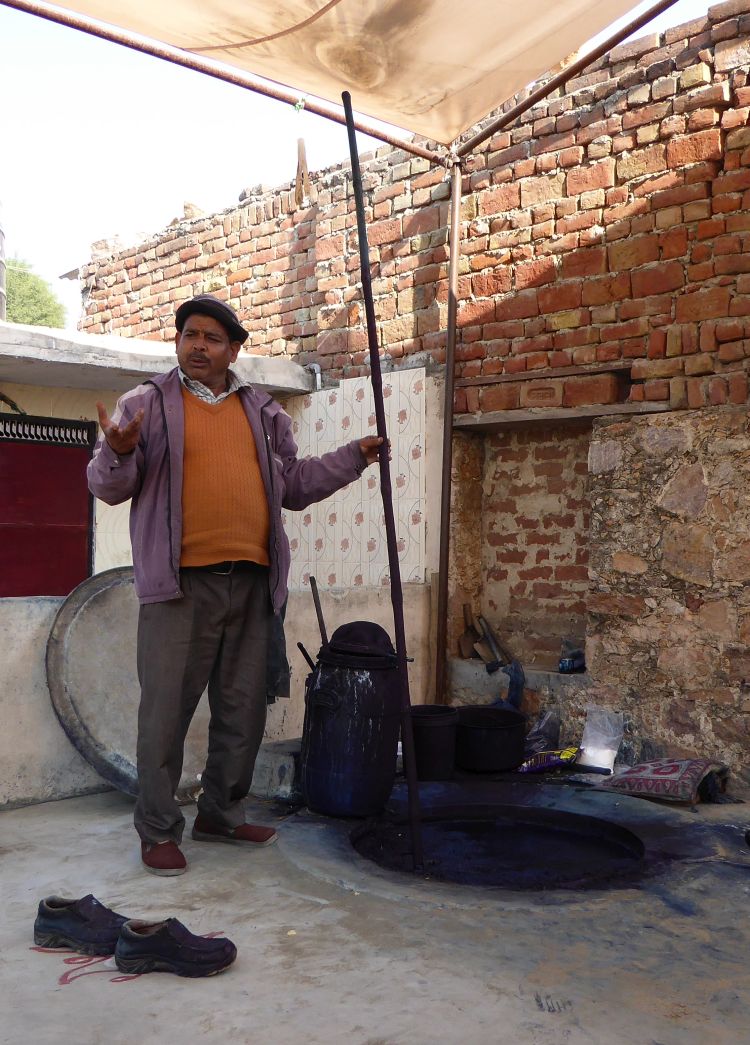
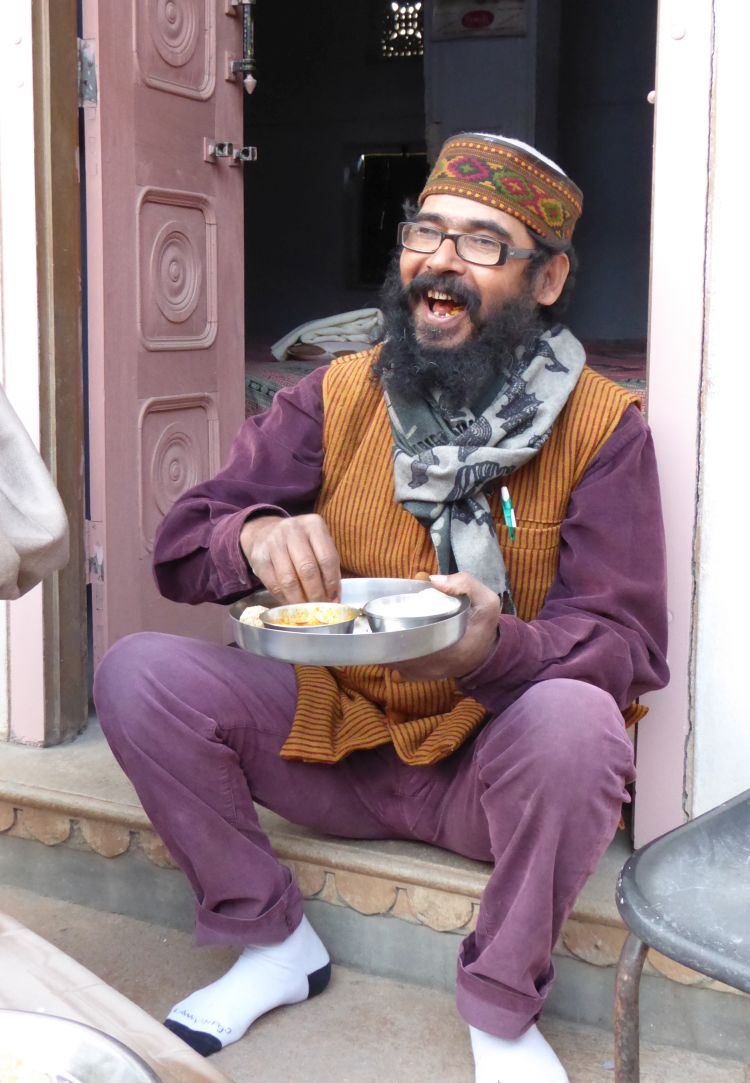
Guided by the wonderful and most energetic Virendra Sharma and Govind Sharma, the first day was spent in the village of Kaladera which is a hub of small to medium scale textile hand-production. The village is about three hours by road (very bumpy roads for the last part) from the centre of Jaipur and at this time of year is surrounded by beautiful lush green fields.
Fields around Kaladera, Rajasthan. © Rosie Wanek
The Khadi weavers workshop sits in the centre of this quiet village. ‘Khadi’ is hand spun, hand-woven cloth. Gandhi made khadi cloth synonymous with Indian national identity during the struggle for independence. It is still worn frequently by politicians as a token of their nationalism and government run Khadi shops clothing, cloth and other handicrafts still exist all over India.
The workshop is run as a cooperative. There are around five people working here making a rough cloth from hand spun cotton and blankets out of more brightly coloured wool. During the day they swap between filling bobbins, washing and starching the raw cotton for the warp, loading the shuttles and operating the big clattering hand looms that fill the small space. It takes around fifteen days to from the arrival of the thread to completing the weaving of a batch of cloth.
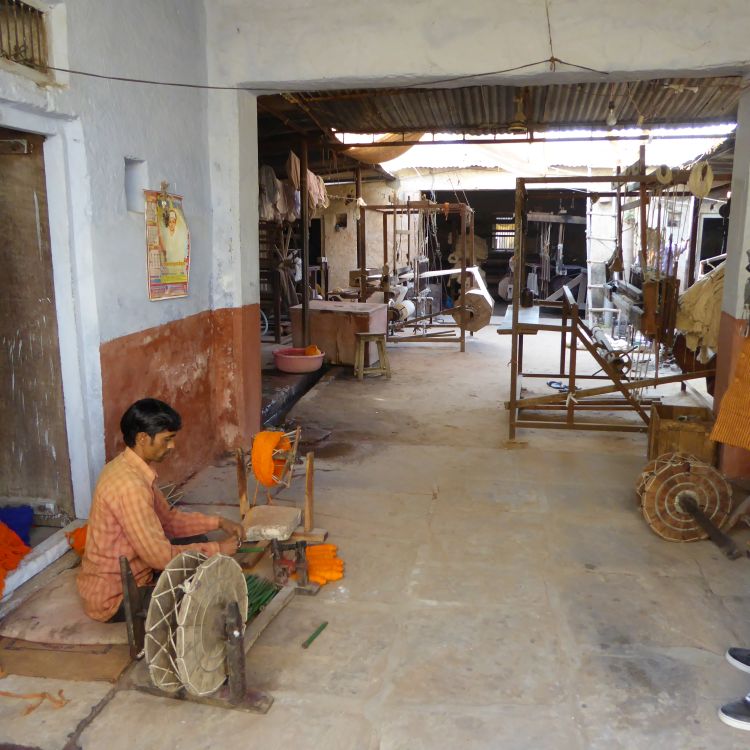
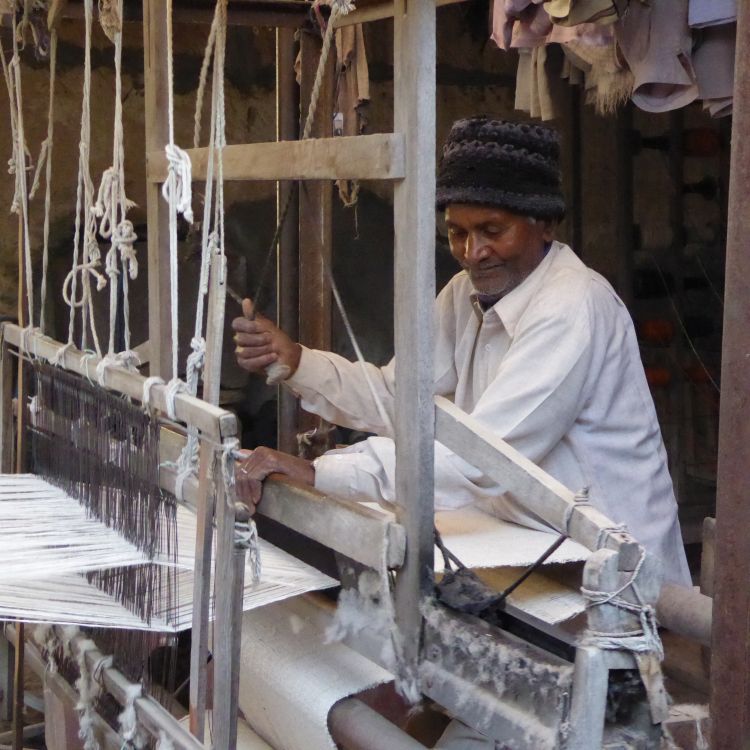
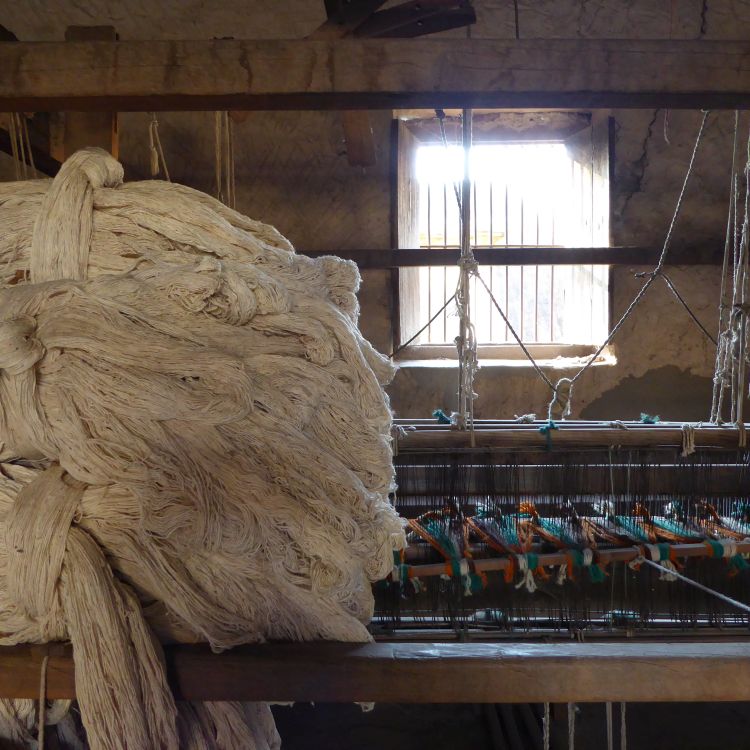
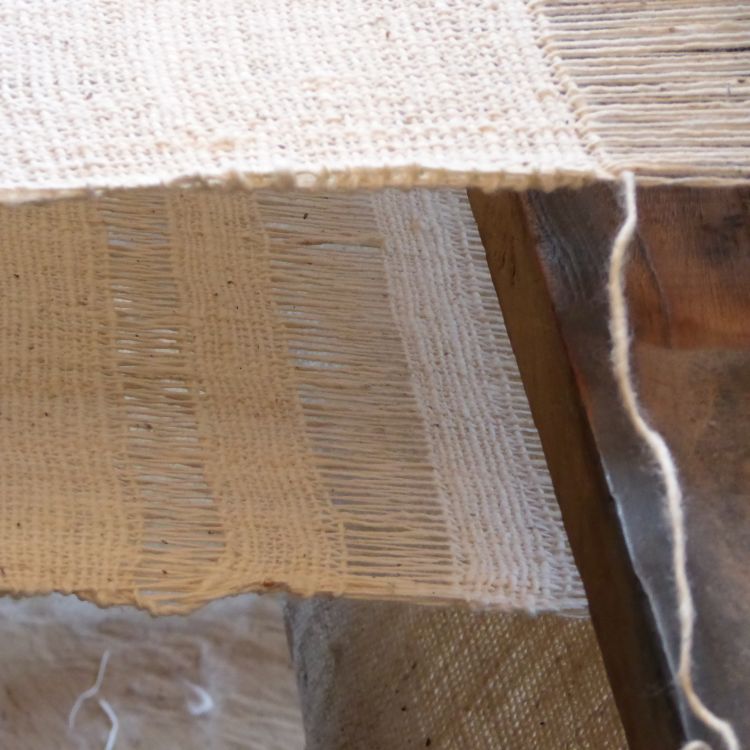
The cloth made in these workshops is bought by the government at a fixed price and sold, again for a fixed price, at the Khadi stores in Jaipur. The scheme provides a guaranteed sale of their work ensuring that they can maintain a regular income. In turn this enables them to continue working in this trade that is increasingly under threat from the ongoing rise of factory production.
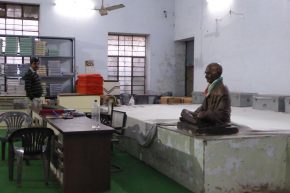
This group of weavers supply their products to the main khadi shop in the centre of Jaipur and a larger one just out of the centre which I visited for the first time – it contained a rather splendid statue of Gandhi. Khadi shops are one of my favourite places to go fabric shopping since no piece is alike and bears the pleasing irregularities of hand production.
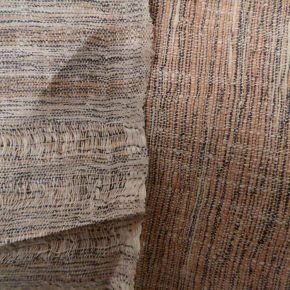
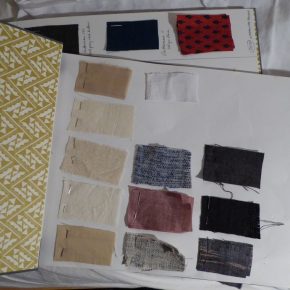
I was also particularly delighted with the bag that my purchases came in this time:
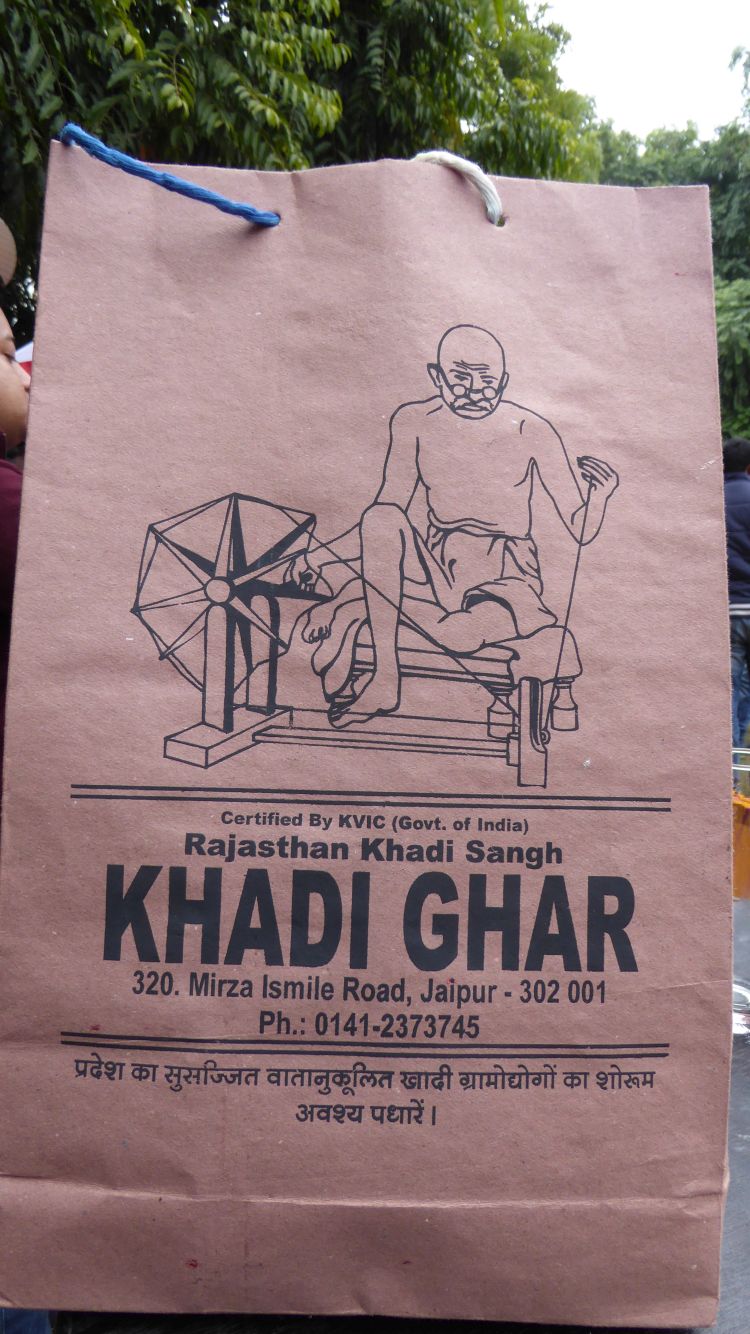
Now I am back, we are working through the photographs, notes and drawings with our film production team, Curators, and Text editor to put together shot lists and story boards ready for the filming trip in mid February. We hope to share more with you on this when they get back.

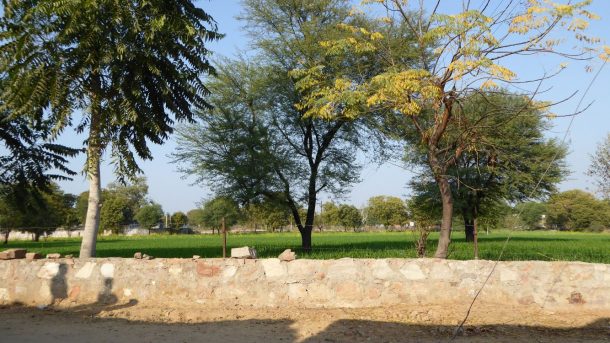
Wonderful read of your travels to Kaladera. Look forward to the film trip very much.
Were you able to visit the weavers homes and I wonder if they are paid enough by the Government? I wish I could travel enough to buy only from the actual person making any handicraft in any country.
We have recently incorporated a Community Interest Company (Khadi CIC)to promote khadi in UK and elsewhere outside India. There is more information in our website http://www.khadi.info. We are based in London and would like to meet up with you.
I would like to know, as Jacqueline WinJones if it is possible for tourist to visit fabric making workshops in Rajasthan.